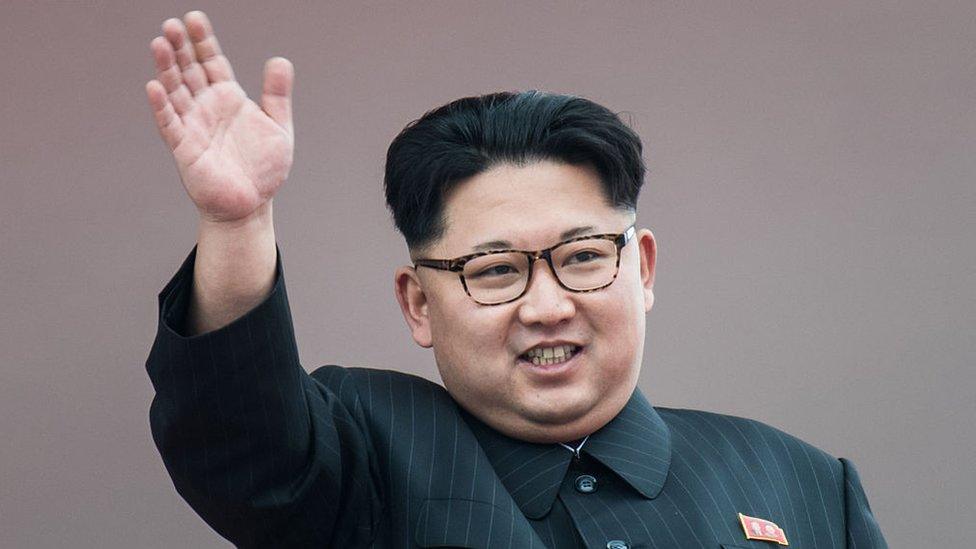Koreas to remove guns and guard posts from Panmunjom 'truce town'
- Published
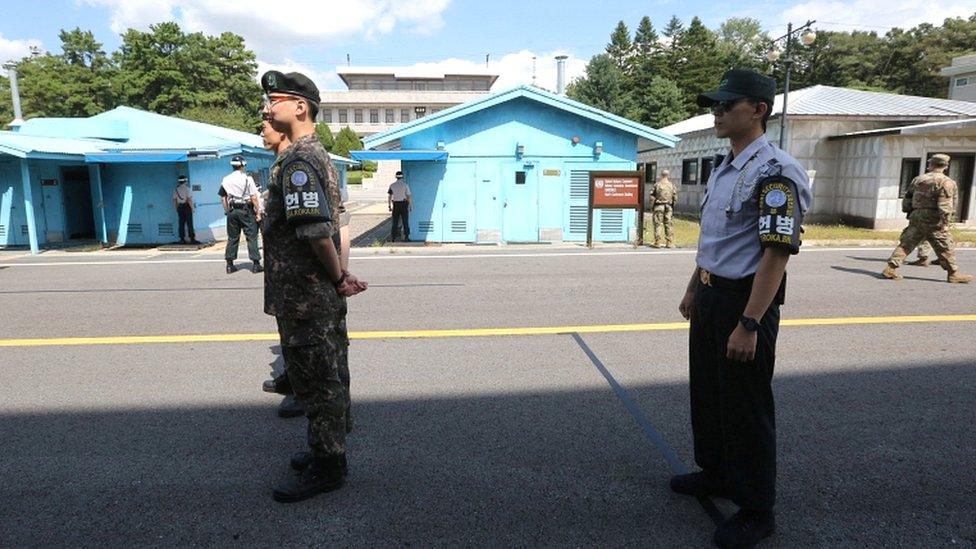
Removing guns at the border is aimed at reducing tension between the two Koreas
North and South Korea have agreed to remove guns and guard posts from Panmunjom, the "truce town" that straddles their border.
Also known as the Joint Security Area (JSA), Panmunjom is the only place along the border where troops from the two Koreas face each other.
The aim is to reduce tensions between the two countries.
Earlier this month, troops from both sides started removing about 800,000 landmines buried along the border.
"The two Koreas and the UNC [US-led United Nations Command] agreed to take measures of withdrawing firearms and military posts from the JSA by 25 October, and for the following two days, the three parties will conduct a joint verification," the South Korean defence ministry in Seoul said in a statement.
The three parties also confirmed the completion of the demining operations in the JSA, it said.
Meanwhile, a group of North Korean officials left for Russia on Monday, the North's official news agency said, amid speculation that leader Kim Jong-un is planning to visit the country later this month or early next month.
Monday's talks were the second meeting of a trilateral JSA commission made up of the two Koreas and the UN Command, which has overseen affairs in the Demilitarized Zone (DMZ) since the end of hostilities in the 1950-53 Korean War.
The village is used as a meeting point, and the leaders of the two Koreas met there twice this year.
But over the years it has also seen a number of armed skirmishes. Last December, a North Korean soldier was shot and seriously injured by his own side while defecting to the South.
A rare instance of a defector fleeing through the demilitarised zone was captured on CCTV in 2017
By Thursday, firearms and guard posts will be removed from the zone, which could reduce the likelihood of similar incidents.
Relations between the North and the South - which are still technically at war - have improved in recent months.
Monday's move was agreed when Kim Jong-un and his South Korean counterpart Moon Jae-in met last month in Pyongyang for talks that centred on the stalled denuclearisation negotiations.
That came after a historic meeting between Mr Kim and US President Donald Trump in Singapore in June in which the pair agreed, in broad terms, to work towards a nuclear-free Korean peninsula.
In April, South Korea said it had stopped broadcasting propaganda via loudspeakers along the border to "ease the military tension between the two Koreas".
- Published1 October 2018
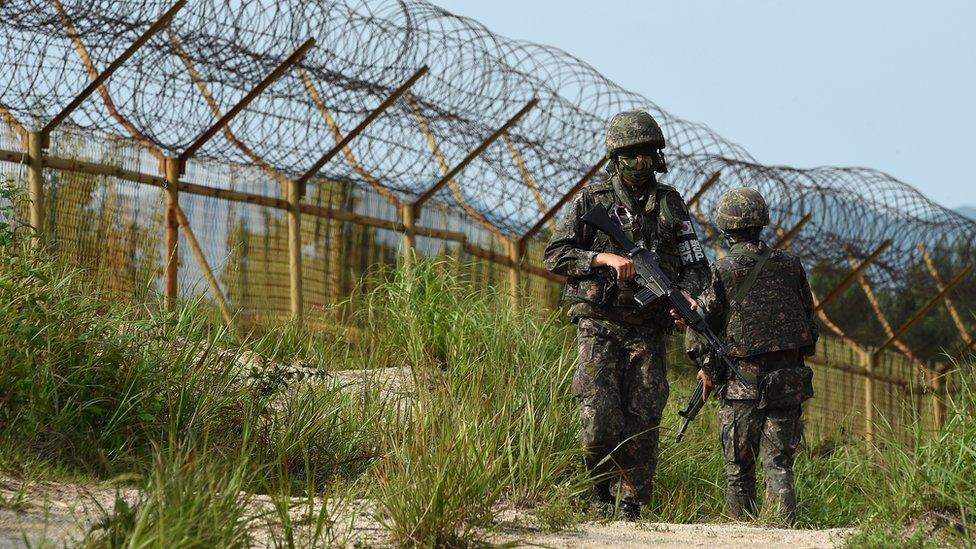
- Published30 September 2018
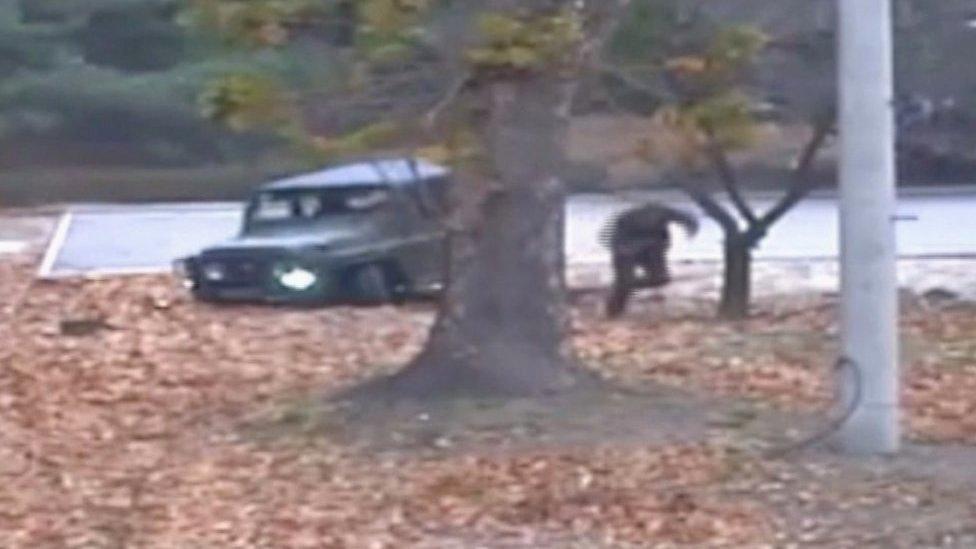
- Published19 September 2018

- Published19 September 2018
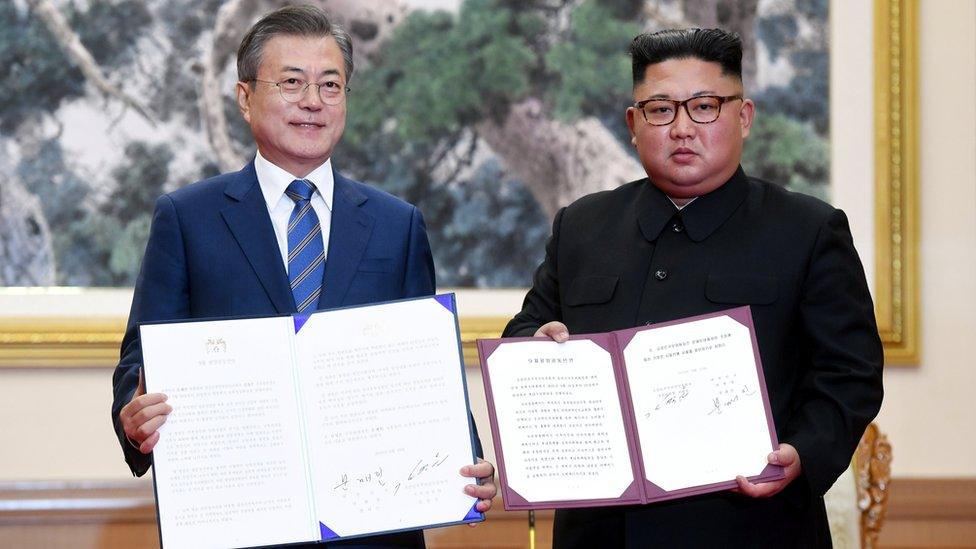
- Published18 September 2018
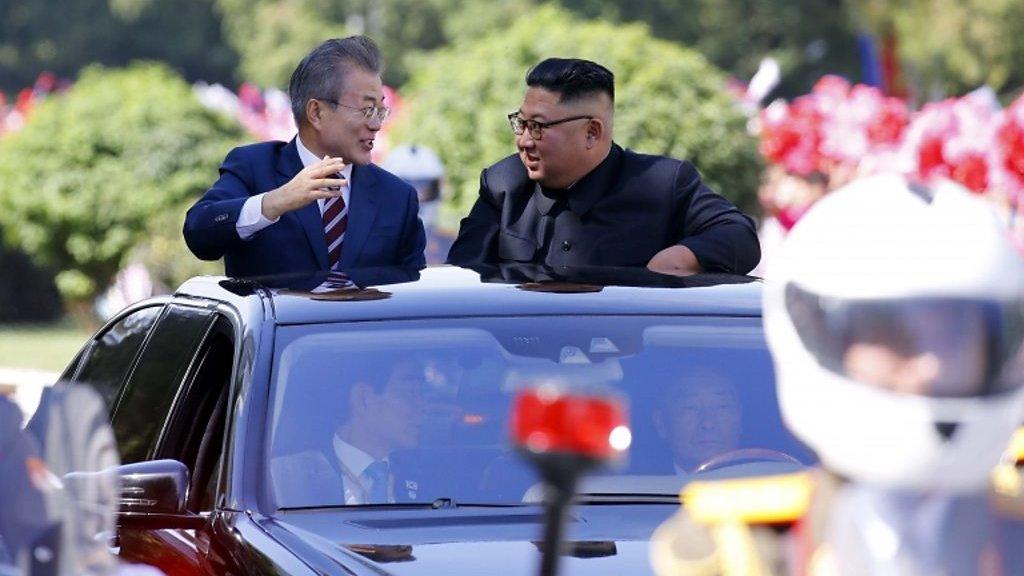
- Published14 September 2018
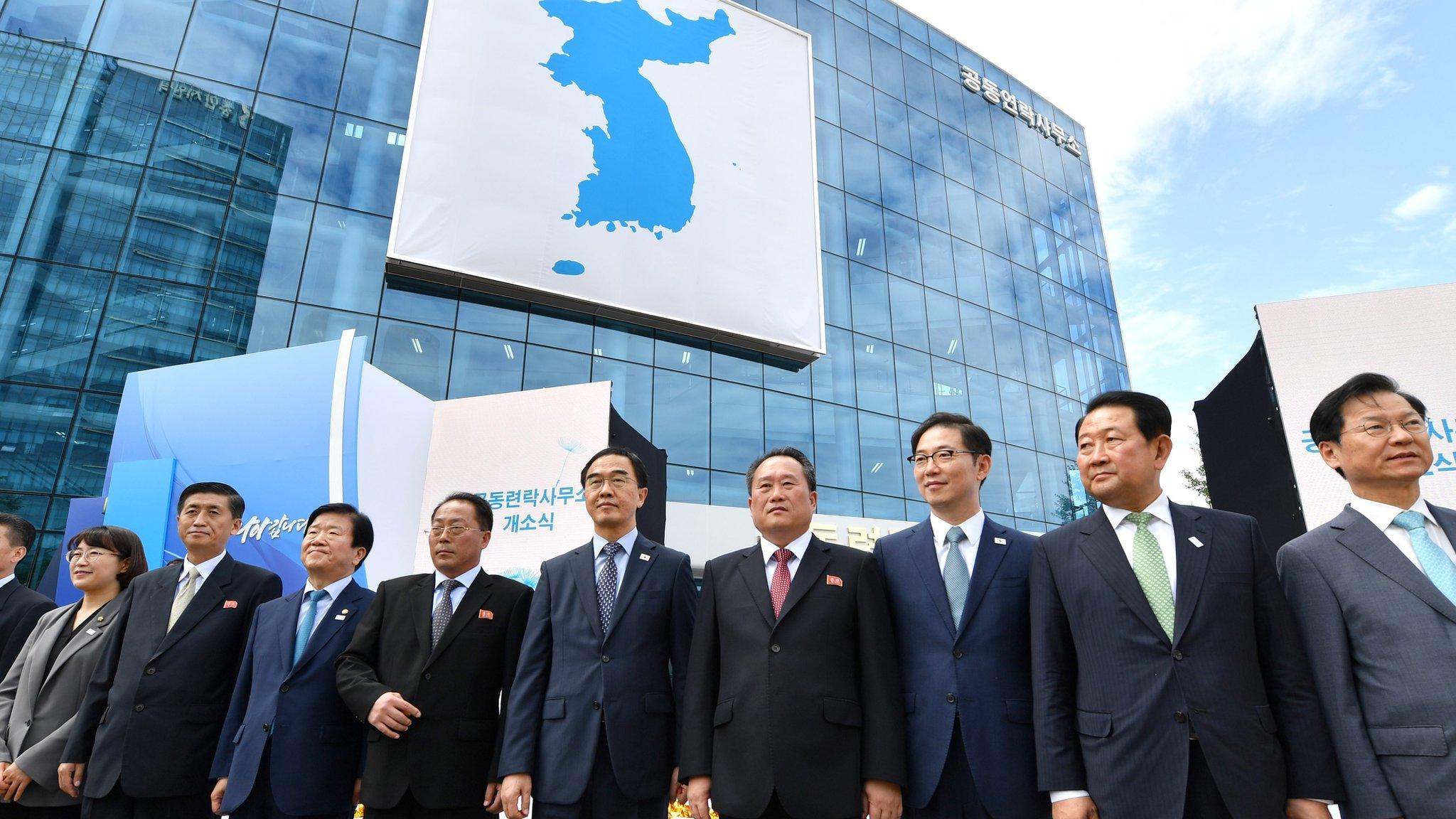
- Published6 June 2018
